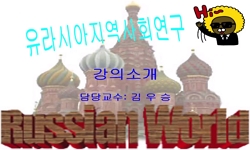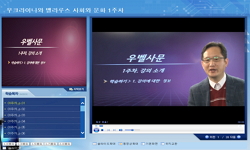The dissolution of the Soviet Union in 1991 resulted in the emergence of 15 new entities that can independently engage in international relations. In particular, Ukraine's restoration of the sovereign rights signifies more than just a creation of a co...
http://chineseinput.net/에서 pinyin(병음)방식으로 중국어를 변환할 수 있습니다.
변환된 중국어를 복사하여 사용하시면 됩니다.
- 中文 을 입력하시려면 zhongwen을 입력하시고 space를누르시면됩니다.
- 北京 을 입력하시려면 beijing을 입력하시고 space를 누르시면 됩니다.
https://www.riss.kr/link?id=A104125006
-
저자
홍완석 (한국외국어대학교)
- 발행기관
- 학술지명
- 권호사항
-
발행연도
2008
-
작성언어
English
-
주제어
Eurasia ; Hegemonic Competition ; Ukraine ; Geopolitical Black Hole ; Orange Revolution ; East and West ; Diplomatic Choice ; Eurasia ; Hegemonic Competition ; Ukraine ; Geopolitical Black Hole ; Orange Revolution ; East and West ; Diplomatic Choice ; 유라시아 ; 패권경쟁 ; 우크라이나 ; 지정학적 블랙홀 ; 오렌지혁명 ; 동과 서 ; 외교적 선택
-
등재정보
KCI등재
-
자료형태
학술저널
-
수록면
271-291(21쪽)
-
KCI 피인용횟수
0
- 제공처
-
0
상세조회 -
0
다운로드
부가정보
다국어 초록 (Multilingual Abstract)
Amid the intensifying power struggle between the US‐led West and Russia, Ukraine is left with little room to maneuver between the East and the West. The country remains exposed to various forms of pressure coming from EU and NATO constantly marching toward the East, and Russia on the watch to thwart their expansionary attempts.
Squeezed between East and West, Ukraine should design their foreign policies firmly based on the cold reality facing the nation in order to ensure national security and prosperity as well as to cope with the changing international order in a more effective and flexible manner. This foreign policy was embodied in the so‐called "multivectorism" advocated by former Ukrainian president Leonid Kuchma.
In a nutshell, multivectorism denies a conflict of policies that can exist between the European vector and the Russian vector, which presents a source of headache for Ukraine in formulating its foreign policy. How Ukraine sets and prioritizes its policies is not a matter of choice between the two vectors. Rather, it involves multivectors. According to the theory, Ukraine can play the role of a "bridge linking East and West". The Yushchenko government is currently shifting toward a pro‐West stance while weaning itself from Russia. Given the geopolitical reality facing Ukraine, however, multivectorism seems to be the only alternative.
The dissolution of the Soviet Union in 1991 resulted in the emergence of 15 new entities that can independently engage in international relations. In particular, Ukraine's restoration of the sovereign rights signifies more than just a creation of a country. Geopolitically, Ukraine is an axis power that can tip the scale in the hegemonic rivalry between the US and Russia over the Eurasian Continent. The strategic value of Ukraine was clearly demonstrated in the presidential election in November 2004, which was viewed practically as a proxy war between the two superpowers.
Amid the intensifying power struggle between the US‐led West and Russia, Ukraine is left with little room to maneuver between the East and the West. The country remains exposed to various forms of pressure coming from EU and NATO constantly marching toward the East, and Russia on the watch to thwart their expansionary attempts.
Squeezed between East and West, Ukraine should design their foreign policies firmly based on the cold reality facing the nation in order to ensure national security and prosperity as well as to cope with the changing international order in a more effective and flexible manner. This foreign policy was embodied in the so‐called "multivectorism" advocated by former Ukrainian president Leonid Kuchma.
In a nutshell, multivectorism denies a conflict of policies that can exist between the European vector and the Russian vector, which presents a source of headache for Ukraine in formulating its foreign policy. How Ukraine sets and prioritizes its policies is not a matter of choice between the two vectors. Rather, it involves multivectors. According to the theory, Ukraine can play the role of a "bridge linking East and West". The Yushchenko government is currently shifting toward a pro‐West stance while weaning itself from Russia. Given the geopolitical reality facing Ukraine, however, multivectorism seems to be the only alternative.
다국어 초록 (Multilingual Abstract)
Amid the intensifying power struggle between the US‐led West and Russia, Ukraine is left with little room to maneuver between the East and the West. The country remains exposed to various forms of pressure coming from EU and NATO constantly marching toward the East, and Russia on the watch to thwart their expansionary attempts.
Squeezed between East and West, Ukraine should design their foreign policies firmly based on the cold reality facing the nation in order to ensure national security and prosperity as well as to cope with the changing international order in a more effective and flexible manner. This foreign policy was embodied in the so‐called "multivectorism" advocated by former Ukrainian president Leonid Kuchma.
In a nutshell, multivectorism denies a conflict of policies that can exist between the European vector and the Russian vector, which presents a source of headache for Ukraine in formulating its foreign policy. How Ukraine sets and prioritizes its policies is not a matter of choice between the two vectors. Rather, it involves multivectors. According to the theory, Ukraine can play the role of a "bridge linking East and West". The Yushchenko government is currently shifting toward a pro‐West stance while weaning itself from Russia. Given the geopolitical reality facing Ukraine, however, multivectorism seems to be the only alternative.
The dissolution of the Soviet Union in 1991 resulted in the emergence of 15 new entities that can independently engage in international relations. In particular, Ukraine's restoration of the sovereign rights signifies more than just a creation of a co...
The dissolution of the Soviet Union in 1991 resulted in the emergence of 15 new entities that can independently engage in international relations. In particular, Ukraine's restoration of the sovereign rights signifies more than just a creation of a country. Geopolitically, Ukraine is an axis power that can tip the scale in the hegemonic rivalry between the US and Russia over the Eurasian Continent. The strategic value of Ukraine was clearly demonstrated in the presidential election in November 2004, which was viewed practically as a proxy war between the two superpowers.
Amid the intensifying power struggle between the US‐led West and Russia, Ukraine is left with little room to maneuver between the East and the West. The country remains exposed to various forms of pressure coming from EU and NATO constantly marching toward the East, and Russia on the watch to thwart their expansionary attempts.
Squeezed between East and West, Ukraine should design their foreign policies firmly based on the cold reality facing the nation in order to ensure national security and prosperity as well as to cope with the changing international order in a more effective and flexible manner. This foreign policy was embodied in the so‐called "multivectorism" advocated by former Ukrainian president Leonid Kuchma.
In a nutshell, multivectorism denies a conflict of policies that can exist between the European vector and the Russian vector, which presents a source of headache for Ukraine in formulating its foreign policy. How Ukraine sets and prioritizes its policies is not a matter of choice between the two vectors. Rather, it involves multivectors. According to the theory, Ukraine can play the role of a "bridge linking East and West". The Yushchenko government is currently shifting toward a pro‐West stance while weaning itself from Russia. Given the geopolitical reality facing Ukraine, however, multivectorism seems to be the only alternative.
참고문헌 (Reference)
1 Нартов, Н.А., "Геополитика" ЮНИТИ 2000
2 "Yushchenko and Putin Clear the Air(The Moscow Times. 25 January. )"
3 "With the block growing in size, EU leads the world economy(Segye Ilbo. January 9."
4 Bong‐Koo, Kang, "Understanding on Contemporary Russian Foreign Policy" Hanyang University Press 1999
5 Kuzio, Taras., "Ukraine: The Unfinished Revolution" Institute for European Defence and Security Studies. (16) : 1992
6 Kuzio, Taras, "Ukraine's Relations With the West: Disinterest, Partnership, Disillusionment" 12 (12): 2003
7 Karatnycky, Adrian., "The Ukrainian Factor" 71 (71): 1992
8 Brzezinski, Zbigniew K., "The Grand Chessboard" Basic Books. 1997
9 "The Eternal Suspicions of the Soviet Mind‐Set(New York Times. 9 December.)"
10 Kyu‐young, Lee, "Postsocialism and the Rediscovery of the Mitteleuropa/Central Europe" 40 (40): 2000
1 Нартов, Н.А., "Геополитика" ЮНИТИ 2000
2 "Yushchenko and Putin Clear the Air(The Moscow Times. 25 January. )"
3 "With the block growing in size, EU leads the world economy(Segye Ilbo. January 9."
4 Bong‐Koo, Kang, "Understanding on Contemporary Russian Foreign Policy" Hanyang University Press 1999
5 Kuzio, Taras., "Ukraine: The Unfinished Revolution" Institute for European Defence and Security Studies. (16) : 1992
6 Kuzio, Taras, "Ukraine's Relations With the West: Disinterest, Partnership, Disillusionment" 12 (12): 2003
7 Karatnycky, Adrian., "The Ukrainian Factor" 71 (71): 1992
8 Brzezinski, Zbigniew K., "The Grand Chessboard" Basic Books. 1997
9 "The Eternal Suspicions of the Soviet Mind‐Set(New York Times. 9 December.)"
10 Kyu‐young, Lee, "Postsocialism and the Rediscovery of the Mitteleuropa/Central Europe" 40 (40): 2000
11 Kuzio, Taras, "Neither East Nor West‐Ukraine's Security Policy Under Kuchma" 52 (52): 2005
12 Wan‐Suk, Hong, "Leonid Kuchma: A heretic in Slavic region. in:Power and Leadership" Inmulgua Sasangsa 2000
13 Deok‐Sun, Lim., "Geopolitics: Theory and Practice" Beommunsa 1999
14 Pfaff, William, "European Union Hangs Out Its 'No Vacancy' Sign(International Herald Tribune. September 26.)"
15 International Herald Tribune, "EU cool to early entry by Ukraine" International Herald Tribune 2005
16 KOTRA, "Discussions and Prospects of Ukraine's EU Membership" published by Korea Trade Investment Promotion Agency 2005
17 Mackinder,H, "Democratic Ideals and Reality" Norton 1919
18 "Challenges to Joining the EU(Kookmin Ilbo. October 10.)"
19 "Bush vs Putin: NATO Expansion or Collision(Joong‐Ang Daily. April 12.)"
20 "A War between Two Victors in Ukraine(Chosun Ilbo. May 7.)"
21 Badkhen, Anna., "2004 Ukraine opposition leader's bold claim of election victory... Hundreds of thousands in Kiev protest vote count" The San Francisco Chronicle 2004
동일학술지(권/호) 다른 논문
-
- 한국외국어대학교 동유럽발칸연구소
- 김용덕(Kim, Yong-Deog)
- 2008
- KCI등재
-
- 한국외국어대학교 동유럽발칸연구소
- 홍완석(Hong, Wan-Sog)
- 2008
- KCI등재
-
- 한국외국어대학교 동유럽발칸연구소
- 표상용(Pyo, Sang-Yong)
- 2008
- KCI등재
-
러시아어 수사구문의 술어 수일치에 관한 의미-통사적 연구
- 한국외국어대학교 외국학종합연구센터 동유럽·발칸연구소
- 추석훈(Choo, Suk-Hoon)
- 2008
- KCI등재
분석정보
인용정보 인용지수 설명보기
학술지 이력
| 연월일 | 이력구분 | 이력상세 | 등재구분 |
|---|---|---|---|
| 2022 | 평가예정 | 재인증평가 신청대상 (재인증) | |
| 2019-01-01 | 평가 | 등재학술지 유지 (계속평가) |  |
| 2016-01-01 | 평가 | 등재학술지 유지 (계속평가) |  |
| 2013-01-01 | 평가 | 등재학술지 유지 (기타) |  |
| 2013-01-01 | 학술지명변경 | 한글명 : 동유럽연구 -> 동유럽발칸연구 |  |
| 2010-01-01 | 평가 | 등재 1차 FAIL (등재유지) |  |
| 2007-01-01 | 평가 | 등재학술지 선정 (등재후보2차) |  |
| 2006-01-01 | 평가 | 등재후보 1차 PASS (등재후보1차) |  |
| 2004-01-01 | 평가 | 등재후보학술지 선정 (신규평가) |  |
학술지 인용정보
| 기준연도 | WOS-KCI 통합IF(2년) | KCIF(2년) | KCIF(3년) |
|---|---|---|---|
| 2016 | 0.13 | 0.13 | 0.17 |
| KCIF(4년) | KCIF(5년) | 중심성지수(3년) | 즉시성지수 |
| 0.16 | 0.15 | 0.459 | 0.05 |




 KCI
KCI






